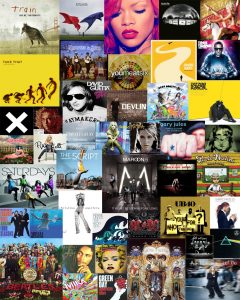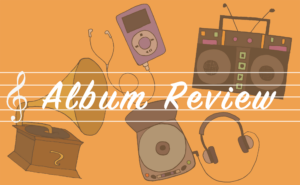Almost as notorious as Taylor Swift herself are her Swifties. To a degree nearly unparalleled by any other contemporary popstar, Swift has amassed a massive, fiercely dedicated fan contingent, many of whom (these writers included!) have considered themselves Swifties for well over a decade. As Swift’s record-breaking Eras Tour has highlighted, the singer has gone through countless reinventions, from changes in musical genre and aesthetics to an ever-evolving public image. And yet the Swifties have stuck by her side through it all—feuds with other celebrities, standoffs with major corporations, a role in the ill-fated Cats (2019), and yes, many breakups—defending her as if she were the perpetual underdog.
It hasn’t always been smooth sailing, so what is it about Swift that has garnered this distinctive loyalty and protectiveness from her fans? Perhaps the most compelling element of Swift’s success is the way she has engaged with her own lore to galvanize fan support. Her 2010 album Speak Now—rereleased last month as Speak Now (Taylor’s Version)—marked a turning point in this process of self-mythologization. While the rerecording fails to add much sonically or lyrically, it represents the pinnacle of Swift’s career-long preoccupation with using her music as a vehicle to break the fourth wall, connect with fans, and control her own narrative.
Speak Now, her third album, found a 20-year-old Swift fresh off her first headlining tour, newly minted as the youngest ever winner of the Grammy for Album of the Year, and still reeling from Kanye West’s widely publicized interruption of her acceptance speech at the VMAs. In other words, in just the two years since the release of her previous album, Swift had gone from near-anonymity to household-name status. Suddenly, the distinctively personal yet strikingly relatable details she’d always written about were increasingly public: rather than longing for the boy next door, Swift was pining over the werewolf from Twilight. And instead of telling off her local truck-driving heartbreaker, she was examining the Kanye incident (on “Innocent”), putting her naysaying media critics in their place (on “Mean”), and calling out John Mayer’s manipulative, age-inappropriate behavior (on “Dear John”).
By tackling these topics—otherwise seen as tabloid fodder—head-on and with nuance, Swift established a core tenet of her relationship with her fans: the belief that they (as dedicated listeners who had carefully parsed every lyric, music video, and interview) understood her on a level that neither casual audiences nor detractors could ever grasp. The rest of the world may have seen her as an immature, vindictive serial dater, but on Speak Now, Swifties saw her as she really was: extending compassion to the man who’d upstaged one of her biggest nights; showcasing the joyful moments in a relationship, and not just the brutal breakups; and reflecting candidly, with regret and accountability, on a time when she broke a boy’s heart. Most notably, Speak Now was entirely self-written, a response to critics who diminished her talent by attributing the success of her prior albums to her collaborators.
Over a decade later, the success of Swift’s multi-year rerecording project reflects her continued ability to rally fan support by crafting narratives that allow Swifties to feel a personal connection to her (and increase their investment in her, both emotionally and financially). The impetus for the rereleases was Swift’s desire to own the master recordings of her first six albums, which, due to contract fine print, belonged to her record label. By framing it as a moral issue at an individual and industry-wide level, Swift managed to garner support for a massive undertaking fueled by an otherwise niche technicality in label contracts. Self-proclaimed “true” fans jumped to showcase their loyalty by only listening to “Taylor’s Version” of their favorite albums, ensuring the rerecordings were both tangibly successful and statement-making.
Ahead of the rerecordings, Swift sweetened the deal with the promise of new music “From the Vault”—previously unreleased songs written at the time of each album’s creation that didn’t make the cut for the original tracklist. The vault tracks on Speak Now (Taylor’s Version) are mostly underwhelming: “Castles Crumbling (feat. Hayley Williams)” feels tonally anachronistic to the rest of Speak Now, while “When Emma Falls In Love” and “Timeless” are cheesily cringeworthy and painfully repetitive, respectively. The flirty, upbeat “I Can See You” is a highlight, encapsulating the thrill of a crush (a key theme on the original album’s “Enchanted” and “Sparks Fly”). Moreover, Taylor Lautner (the aforementioned Twilight werewolf and erstwhile Swift boyfriend) starred in the song’s music video and made a guest appearance at an Eras Tour show in early July. By reviving a key character in the Speak Now universe, Swift used “I Can See You” as an opportunity to expand the lore around her discography.
The vault tracks also added new characters: two highly anticipated featured artists, Hayley Williams and Fall Out Boy, neither of which lived up to fans’ expectations. “Castles Crumbling (feat. Hayley Williams)” is fine, but remains flat throughout, a disappointment from two powerhouses like Williams and Swift. The track discusses Swift’s relationship with fame, but its approach feels much more relevant to Swift’s recent experiences than those of her young adult self, and sonically, resembles her recent work on folklore (2020) and evermore (2020) much more than anything on Speak Now.
Meanwhile, “Electric Touch (feat. Fall Out Boy)” is dynamic and full of energy, but Patrick Stump’s raspy and intense vocals fail to blend with Swift’s smooth tone. The incohesive sound takes away from what would be a great solo Swift track about the buildup to a first date; yet, where “Electric Touch” grows on you with each listen, “Castles Crumbling” remains a frequent skip. While these tracks are far from perfect, it’s telling that Swift can now freely feature artists without fear of being discredited for her own contributions, unlike during the original Speak Now era, when she pointedly included no collaborators.
The shining star of the vault tracks is “Foolish One,” a quintessential Taylor track about unrequited love that takes a new perspective, with Swift telling herself to stop pining and walk away. Its production and style fit in perfectly with Speak Now’s sound—simple guitar and drums that let Swift’s airy vocals shine—and it is easy to believe that this track was written alongside the original album. “Stop checking your mailbox for confessions of love that ain’t never gonna come” is sometimes exactly what you need to hear to snap out of delusion, and acts as a palette cleanser to the daydreamy, sweeter love songs like “Ours” and “Speak Now.”
Beyond the vault tracks, the iterative process of rerecording added an extra layer to the listening experience. Speak Now (Taylor’s Version) sounds different. Of course it does: Swift has grown up. Her voice has matured, and her sound has evolved with it. The rerecordings and their deviations from the original source material are often defined by the perspective Swift has gained through the years of separation between her and her work. This perspective—in the case of Speak Now, that of a 33-year-old reminiscing on the experiences of her 18–20-year-old self—can either strengthen or weaken the overall impact of the rerecorded album.
In “Dear John,” for example, the fact that she is now about the same age John Mayer was when he dated her (friendly reminder: she was just 19 at the time!) adds additional meaning to the retrospective nature of the song. Her mature tone helps her hit the song’s belts with more certainty without losing the emotional nature of the original track. Unfortunately, tracks like the hopeful yet devastating “Last Kiss” suffer from Swift’s more polished tone, leaving listeners yearning for the emotive voice cracks and shakiness with which Swift originally recorded this ballad dissecting her raw shock at the ending of a relationship.
These changes, however, were inevitable products of her age and maturity—other, more purposeful edits to the original material were less than successful. “Haunted (Taylor’s Version)” completely changed the intense (and, for lack of a better word, haunting) production adored by fans of the cult classic original track. The addition of marching band–esque snare drums and an out-of-place, loud bass riff drowns out the already low-volume violin swells that defined the original track. Rather than engulfing the listener with its immense and sweeping instrumentals, the new version is simply overwhelming.
One notable lyric change in “Better than Revenge” has also garnered a largely negative reaction from fans. While the original chorus contains the line, “She’s better known for the things that she does / on the mattress,” the rerelease replaces this phrase with, “He was a moth to the flame / she was holding the matches.” The original lyric was widely recognized as a misogynistic and immature take, slut-shaming the other woman when the cheating was the fault of the partner who made that decision. It makes perfect sense that Swift, now an outspoken feminist (sometimes …), would understand and correct her mistake; still, this change disappoints.
“Better Than Revenge” is campy to its core. We would bet money on the fact that Taylor Alison Swift has never enacted any plot of revenge. The whole song is silly and fun, and its apparent misogyny (present in many more lines than the scrapped one) ought to be received just as frivolously as the song itself. The rerelease is still just as camp, but it loses just a bit of its ridiculousness with the insert of a folklore-esque lyric in the place of one of her most iconic lines.
The rerelease of Speak Now comes as Swift continues to ascend to new heights, and this timing adds new meaning to her early explorations of fame and life in the public eye. Back in 2010, tracks like “Mean,” “Innocent,” and “Long Live” marked the first time Swift had opened up about the experience of having an audience—both critics and fans alike—a theme that has since become a staple of her discography. It’s moving to listen to grown-up Taylor reflect on her teenage experience given the intimate, diaristic nature of the album, knowing how her stardom has skyrocketed since its initial release. And it’s particularly impactful for Swifties who’ve been steeped in the lore and invested in Swift’s evolution for years, especially as so many fans feel like they grew up alongside her.
Speak Now (Taylor’s Version) couldn’t quite live up to the 2010 original, with some notable disappointments on rerecordings and vault tracks alike. Nevertheless, the revival of an album as personal and consequential as Speak Now in the public consciousness sparks a nostalgic, enjoyable listening experience for longtime Swifties. With the rerecording of Speak Now (Taylor’s Version), Swift pauses between the chaos of Eras Tour shows and nonstop releases to take a breath, reflect, and—as she says on “Better Than Revenge”—stand in the corner and think about what she did.






